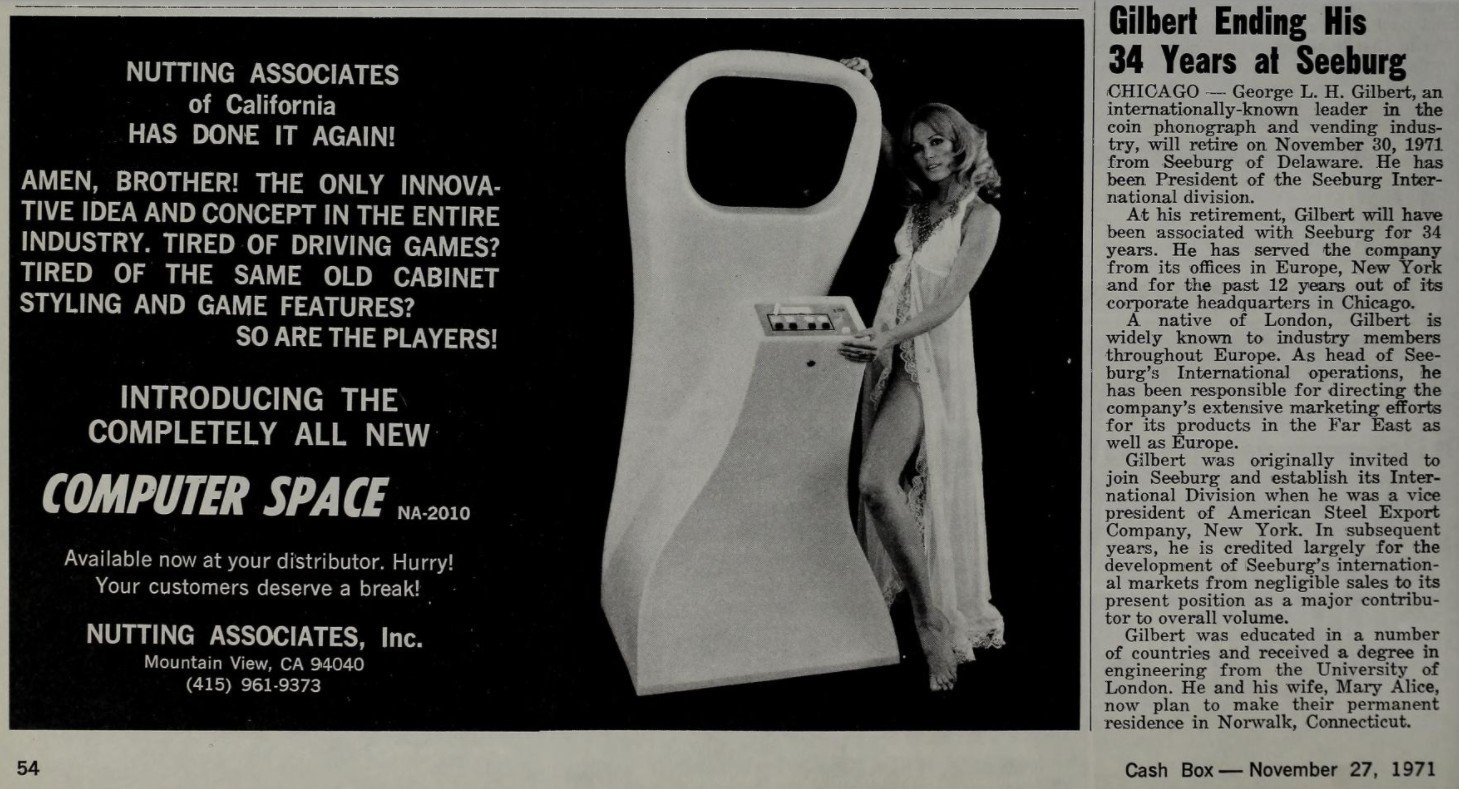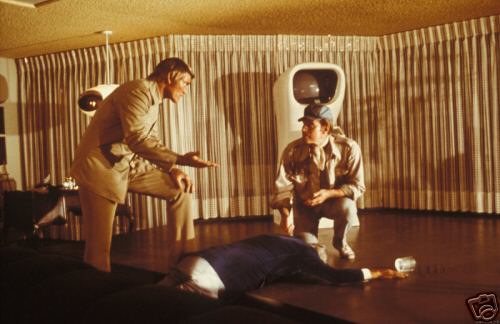
Arcade games have been around since the early 1900s. From ball rolling pastimes like Skee-Ball and Fascination to the burger joint stand-bys like Pinball, America has long had a fascination with dumping coins into things to get a thrill (including that movie I saw with your mother last night!). But in 1971, a 26-year-old named Nolan Bushnell who worked for Nutting Associates with the then bizarre job title of “Videogame Designer”, invented a new type of arcade game called Computer Space that forever changed the world.
Just one look at the cabinet, and you can tell it’s a relic from a time in which shows like Star Trek was considered accurate interpretations of the future. With its crazy curved exterior and funky metal flaked paint, it looked like something out of a science fiction movie.

There’s even a scene in the classic film Soylent Green that features a Computer Space machine in the background, as you can see in this screen capture, with a modified white version of the game.
The control panel is a retro-styled thing of beauty. With it’s 2 “ROTATE”, and a “FIRE” and “THRUST” button, the gameplay and ship design was still used many years later when such classics like Asteroids and Star Castle were introduced.

In some cases, the coin collector was an actual old coffee can! Remember this was still before Atari games were out, so it was pretty darn primitive. The technical manual states that there’s one memory board to control the ship and another for the joystick to work. All for about a game that took up about 1K of data.
Unfortunately, Computer Space wasn’t much of a success. Its gameplay and controls proved to be too confusing for the average inebriated bar patron that was around these machines. Bushnell’s net profit from the sales was a whopping $250 when all was said and done, which left him just enough to start up a little company called Atari.
The inspiration for Computer Space was a computer game designed in 1962 called Space War, the first videogame ever made (which required a machine the size of about 4 refrigerators to play, at the time). An arcade version of Space War was later made, but not until 1977.